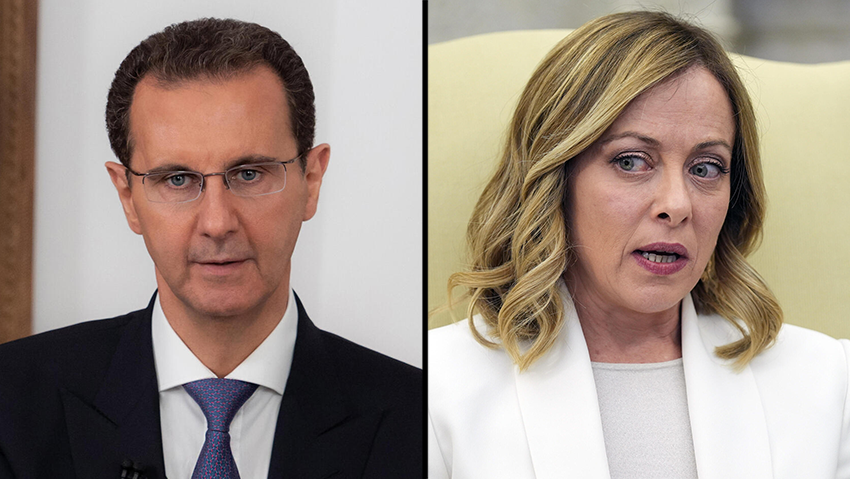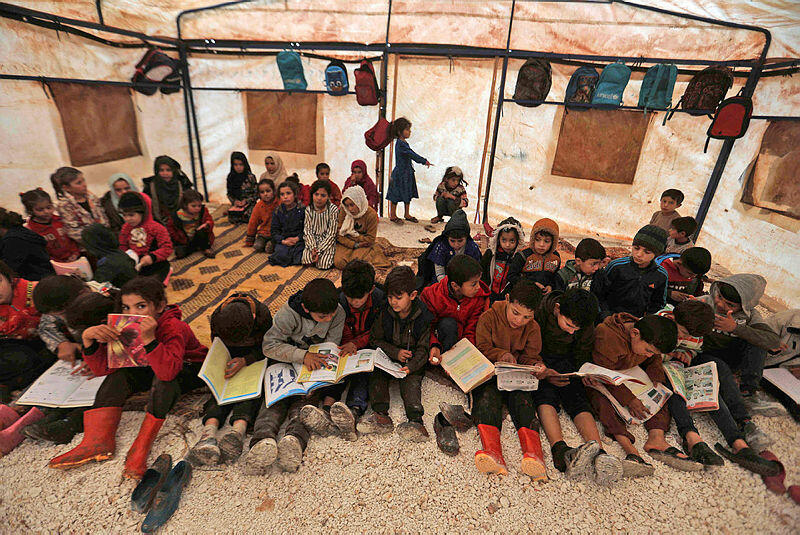Getting your Trinity Audio player ready...
Foreign ministers from Italy, Cyprus, Slovenia, Slovakia, Austria, the Czech Republic, Greece and Croatia have drafted a position paper calling for a change in the European Union’s approach to Syria, namely lifting sanctions and renewing diplomatic ties with the regime of President Bashar al-Assad. Italian Foreign Minister Antonio Tajani and his counterparts argue that the EU’s humanitarian aid policy has failed.
Since the start of the Syrian conflict in 2011, EU member states have provided over €33 billion in aid for displaced Syrians and refugees. Despite this investment, the ministers assert that the goals have not been achieved.
2 View gallery


Syrian President Bashar al-Assad and Italian Prime Minister Giorgia Meloni
(Photo: AP Photo/Evan Vucci, EPA)
“After 13 years of war and EU aid, 90% of Syria's population lives below the poverty line, and seven out of ten residents need humanitarian assistance,” reads the document submitted to EU High Representative Josep Borrell.
“Humanitarian aid alone is not enough. The EU must lift some sanctions against President Assad's regime and engage in diplomatic relations with him. Over the past two years, this issue has been overshadowed by the wars in Ukraine and Gaza, but we must return to it.”
This proposal contrasts sharply with the EU's policy since 2017, which aimed to end the Syrian civil war through regime change, save war victims, promote democracy, rehabilitate Syria and bring those responsible for the population's suffering to justice.
The position paper suggests that the ministers are motivated more by domestic politics than concern for the Syrian people, aiming to address the rise of the far-right in Europe and public demand to solve the refugee problem. More than a million Syrian refugees have come to the EU, and the paper argues that establishing diplomatic ties with Syria would make it a place where refugees could return.
Discussions about Syrian refugees in Europe have intensified recently, partly due to the results of the European Parliament elections and the thousands of Syrians attempting to reach Cyprus from Lebanon. Many travel on boats unfit for human passage, raising fears of humanitarian disasters at sea.
“The steps taken so far have mainly hurt civilians and not the regime and authorities,” wrote the ministers. “We must create a reality where residents have the will and interest to stay in Syria and return to it.”
However, with 12.9 million citizens expected to suffer from hunger in Syria this year, and an estimated eight out of nine children not receiving enough food, it is unclear how the EU's rapprochement with Assad will help Syrians or EU countries, despite the ministers' goals.


